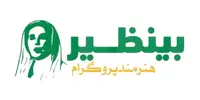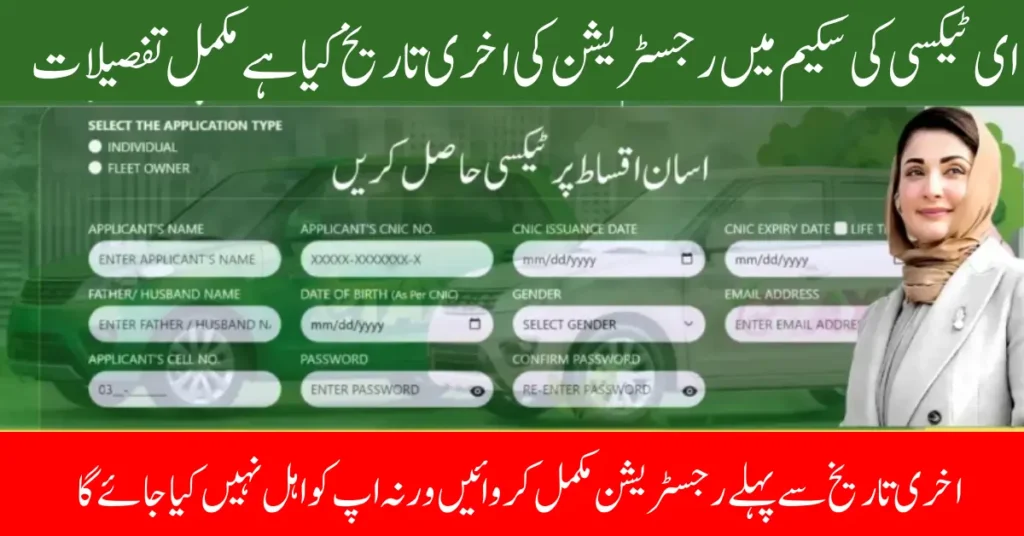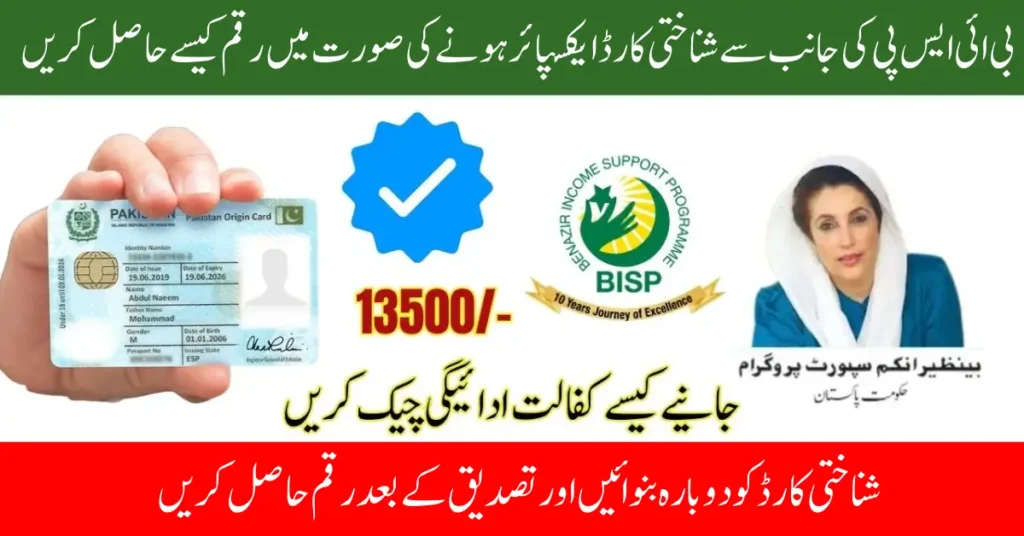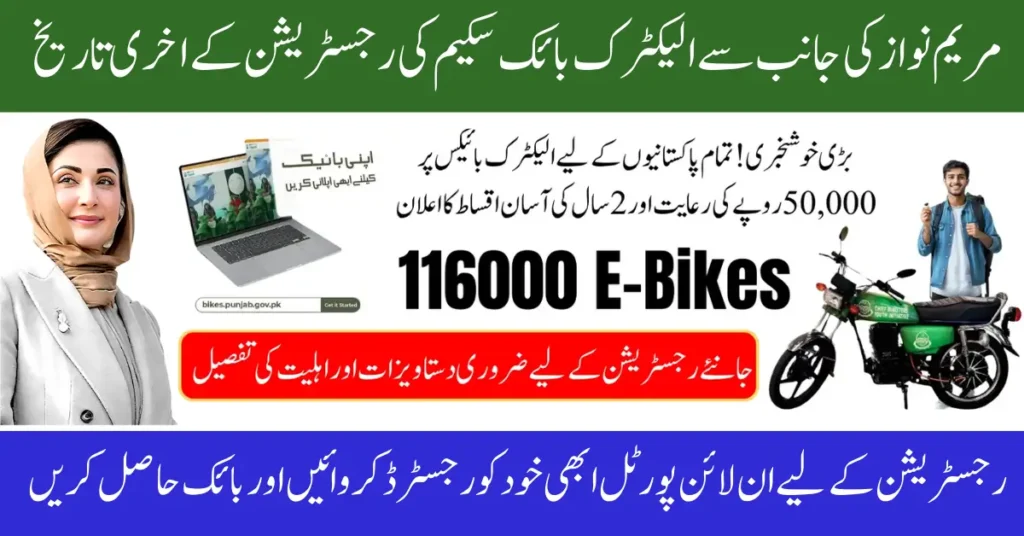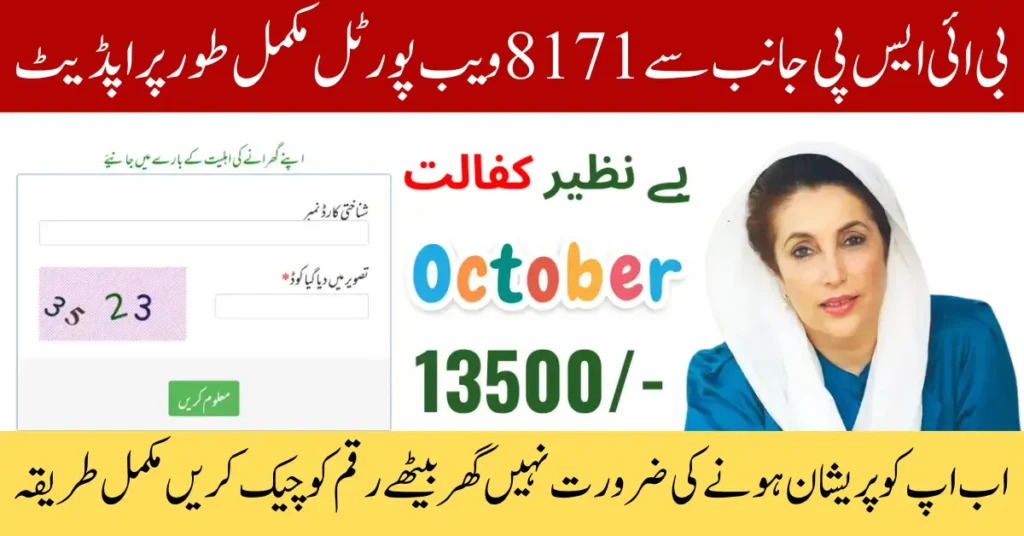Benazir Hunarmand Program
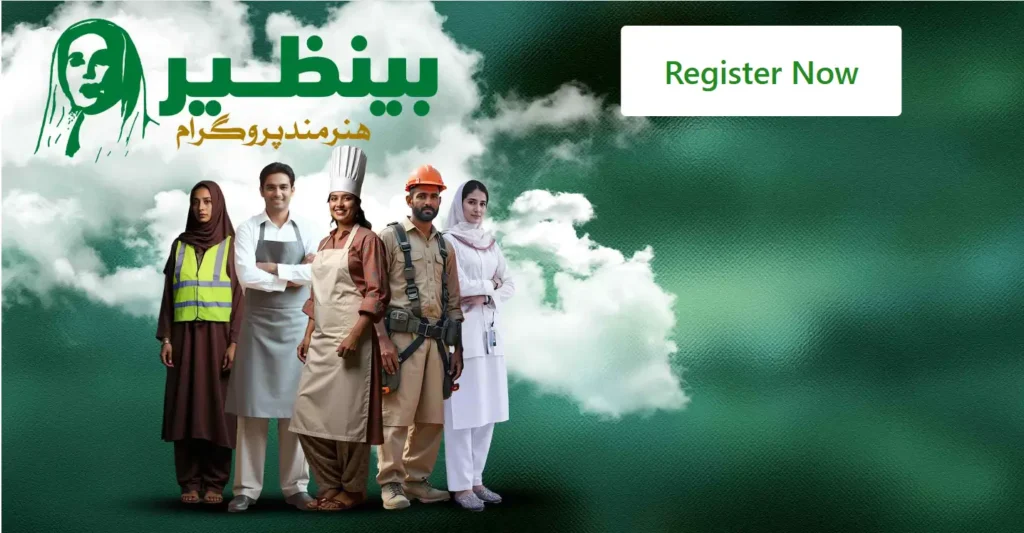
Benazir Hunarmand Program (BHP) is a new national skills‐training initiative under the Benazir Income Support Program. That is launched on 21 June 2025 (Benazir Bhutto’s birthday) by President Asif Ali Zardari. It marks BISP’s shift from purely cash transfers to empowerment through marketable skills. BHP’s vision and objectives are to break the cycle of poverty by giving low-income families, especially women and youth, demand-driven vocational skills that lead to dignified employment or self-employment.
The program targets BISP beneficiary households and their families, aiming for poverty graduation and economic inclusion. As BISP Chairperson Senator Rubina Khalid has emphasized, the goal is to equip “deserving individuals…with essential skills to achieve self-reliance”.
By offering training in internationally recognized trades and tying it to jobs at home and abroad, BHP aspires to make participants economically independent. Fifty percent of all trainees are reserved for women, reflecting an explicit commitment to gender equality and women’s empowerment.
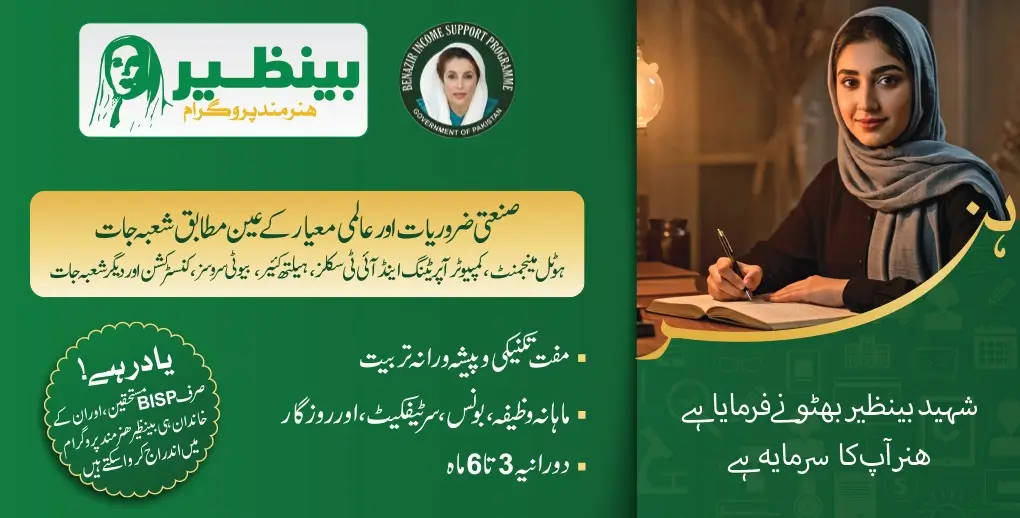
Eligibility Criteria For Benazir Hunarmand Program
To be Eligibile you must contains the following Eligibility Criteria
- Beneficiary status: Open only to existing BISP beneficiaries (registered in the BISP Dynamic Registry) or their families.
- Education: Minimum secondary education (Matric, 10th grade).
- Age: Applicants must be 18–40 years old.
- One per family: Only one individual per household may enroll.
- Documentation: A valid CNIC and active mobile number are required for registration.
Targeting: The program uses BISP’s database to identify “deserving” low-income individuals, with a focus on women and youth in underserved areas. (An official press release notes that BHP is designed to extend “access to high-quality technical and vocational education to members of BISP beneficiary families”.)
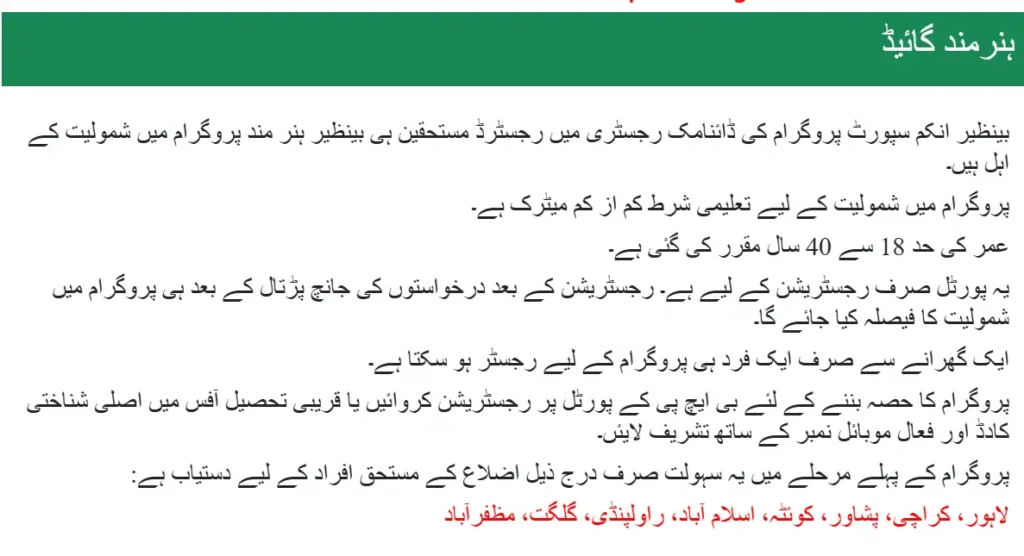
Latest News and Updates
Benazir Hunarmand Program Training Fields and Courses Offered
Benazir Hunarmand Program offers free, demand-driven vocational and technical training across a wide spectrum of trades:
- Information Technology & Digital Skills: Computer programming, web development, graphic design and other ICT Skills.
- Language & Communication: Foreign languages (e.g. German, Chinese) to boost global employability.
- Healthcare: Nursing and related high-demand health-sector training.
- Construction & Technical Trades: Electrician work, plumbing, carpentry, welding, and building skills.
- Hospitality & Services: Training for hotel, restaurant and service industries.
- Arts, Crafts & Creativity: Tailoring/stitching, beauty and wellness, traditional crafts (artisanship). Artisans will be trained in craft skills and helped to market their products.
- Entrepreneurship & Professional Skills: Business management, marketing, financial literacy and other soft skills to support self-employment (integrated into training).
These fields were selected based on labor-market demand. For example, officials have highlighted nursing, ICT and foreign languages as global growth sectors. Training is typically short-term (on the order of a few months per course) and combines classroom instruction with hands-on, on-the-job learning.
Upon completion, graduates receive nationally and internationally recognized skill certificates. (BISP and its partners emphasize that BHP certificates will be aligned with industry standards, enhancing job placement or overseas work opportunities.)
Partner Institutions and Training Providers
Benazir Hunarmand Program is being implemented through a network of public and private partners:
- NAVTTC (National Vocational & Technical Training Commission) – The federal skills regulator has signed an MoU with BISP to use its Skills Training Voucher framework, greatly expanding access to NAVTTC-accredited courses for BISP families.
- Provincial TEVTAs – Punjab, Sindh and other provincial technical education authorities are coordinating with BISP to provide curriculum, trainers and certification aligned to each province’s p
- rograms.
- Industry & Chambers of Commerce – Business groups are helping design courses and absorb graduates. For example, the Karachi Chamber of Commerce & Industry (KCCI) has pledged support in curriculum development and job placements. KCCI leaders have applauded BHP as a historic move from welfare to empowerment.
- Pakistan Poverty Alleviation Fund (PPAF) – PPAF has partnered to extend micro-loans and financial-support services to BHP graduates, enabling entrepreneurship. (BHP explicitly includes interest-free loans as part of its package.)
- Development Partners and NGOs – International agencies and NGOs (WFP, WHO, GIZ, etc.) participate in the “Friends of BISP” platform, offering technical assistance, quality assurance and links to further opportunities.
- Training Centers – A large number of public and private vocational institutes nationwide have been empaneled to deliver BHP courses. These include existing NAVTTC/TEVTA colleges as well as non-profit and for-profit training centers. (While a full list is not published, BISP has said selected candidates will be trained “in recognized institutes” across the country.)
Together, this network ensures training is aligned with industry needs and includes career placement support. Notably, BHP’s design “offers a holistic approach” by combining skill training with financial literacy and loan access.
Benazir Hunarmand Program Registration Process
BISP beneficiaries can apply online via the official Benazir Hunarmand Program portal. At launch, registration opened on 21 June 2025 through the BISP website (the “Hunarmand Portal”). Applicants log in with their CNIC and mobile number. (Alternatively, one can register in person at the nearest Tehsil office with original CNIC and phone.) Key points:
- Online Portal: Available at the BISP website; applicants must create a login and fill in personal/educational information as prompted.
- Documents: Required documents include the applicant’s CNIC and any relevant educational or skill certificates (if applicable). (No fees are charged.)
- Selection: Submissions are reviewed for eligibility; shortlisted candidates are then contacted for course placement. Only one person per family may be enrolled.
- Deadlines: BISP has not announced fixed application deadlines; the portal remains open for the pilot cohort. Interested beneficiaries are advised to apply promptly, as spaces are limited.
(As of this writing, no centralized “8171” payment portal is in use for BHP – registration is handled through the new Hunarmand portal.)
Financial Support and Benefits
Participants do not receive a cash stipend for course attendance. Instead, Benazir Hunarmand program provides a bundle of support services:
- Training: Free professional instruction in chosen field.
- Financial Literacy: Courses on budgeting, saving and business planning are built into the curriculum.
- Interest-Free Loans: Graduates gain access to loans (via PPAF or other schemes) to start businesses or purchase tools.
- Internships/Placements: Industry partners have committed to offering internships and jobs to BHP graduates. A high-level BISP stakeholder meeting pledged employment offers, on-the-job training and networking for beneficiaries.
- Market Linkages: Artisans and small entrepreneurs are connected to markets (exhibitions, online platforms) to sell their products.
In sum, while no direct allowance is paid, BHP’s “holistic approach” is intended to launch participants into income generation.
Required Documents for Registration
To successfully apply for the Benazir Hunarmand Program 2025, you need to have the following documents:
- Valid CNIC (Computerized National Identity Card) – The applicant’s CNIC must be original and valid.
- BISP Beneficiary Verification – The applicant must already be part of a BISP-registered household.
- Active Mobile Number – Ensure your SIM is registered under your CNIC and is in working condition to receive SMS updates.
- Educational Certificate (Optional but Preferred) – Minimum Matric certificate may be required depending on the course.
- Passport-size Photograph – Some training institutes may ask for a recent photo.
- Proof of Residence (if asked) – Address confirmation or utility bill copy (not always required).
These documents should be ready before starting online registration on the Hunarmand Portal.
Duration, Structure and Certification
Courses under BHP are short-term vocational programs, typically ranging from a few weeks up to about six months, depending on the trade (the exact duration varies by skill). The structure emphasizes hands-on, practical training: classes include both classroom instruction and on-the-job or workshop experience. Many courses involve internships or work placements for real-world experience.
Upon successful completion, trainees are awarded skill certificates. These credentials are aligned with NAVTTC/TEVTA standards and are recognized nationally (and, in some cases, internationally). For example, a graduate of an IT course might receive a certificate endorsed by NAVTTC, while a nursing student earns accreditation through the relevant health vocational board.
The BHP certificates are intended to ensure employability: as BISP notes, skills “certification of skills [will be] recognized nationally and internationally”, preparing graduates for jobs both in Pakistan and abroad.
Districts in 1st Phase
The pilot phase of BHP launched in major urban and regional centers across Pakistan. Initially, only residents of the following areas are eligible:
- Lahore
- Rawalpindi (capital area)
- Karachi (and surrounding metropolitan area)
- Peshawar
- Quetta
- Islamabad city and suburbs
- Gilgit
- Muzaffarabad
Over time, the program is expected to expand province-wide. BISP has indicated plans to roll out BHP training to other districts and provinces in future phases, aiming for nationwide reach.
Enrollment and Outcomes (Projected)
As BHP was only launched in mid-2025, official statistics on enrollment, graduation or post-training employment are not yet available. (BISP has stated a target of training tens of thousands of beneficiaries in early cohorts, but precise figures have not been published.)
For context, international experience suggests high impact: e.g. studies show roughly 70% of vocational graduates in Pakistan find jobs. BISP’s hope is that by capturing even a fraction of that success, the Hunarmand Programme will significantly boost employment among the ultra-poor. Outcomes will likely be reported after the first year of the program.
Impact on Women and Youth Empowerment
A core aim of BHP is to empower women and youth. By reserving half of its slots for women, the program actively counters traditional barriers to female education and work. Officials stress that skill training enables women to earn dignified incomes: as Senator Khalid explained, BHP will “help [participants] become self-reliant” so they can support their families and contribute to the economy.
Industry voices echo this: the KCCI president praised the initiative for “break[ing] the cycle of poverty,” noting that “giving skills instead of permanent aid is the right way forward”. By targeting rural youth and women, BHP hopes to tap into an underutilized workforce. Although it is too early for individual success stories, the program’s design and partnerships have been widely lauded as historic steps toward upward mobility for Pakistan’s most vulnerable—honoring Shaheed Mohtarma Benazir Bhutto’s legacy of social justice and empowerment.
Sources: Official announcements and news reports from the Government of Pakistan and BISP (Dawn, PID press releases, etc.)
Frequently Asked Questions (FAQs)
🔹 What is the Benazir Hunarmand Program?
A free skill training program under BISP to help poor families learn professional and technical skills.
🔹 Who can apply for the Benazir Hunarmand Program?
Only BISP beneficiaries aged 18–40 with minimum Matric education.
🔹 How to register for the Benazir Hunarmand program?
Apply online through the official BISP Hunarmand Portal using your CNIC and mobile number.
🔹 Is there any registration or training fee?
No, both registration and training are 100% free.
🔹 Will I get a monthly stipend during training?
No monthly stipend is given, but training, certification, and support are free.
🔹 Can women apply for this program?
Yes, 50% of seats are reserved for women.
🔹 What courses are offered in this program?
IT, freelancing, nursing, tailoring, electrician, beautician, languages, and more.
🔹 Is this program available in all cities?
Currently available in major cities like Lahore, Karachi, Islamabad, Quetta, Peshawar, and Gilgit.
🔹 Will I get a certificate after training?
Yes, you will get a NAVTTC or TEVTA recognized certificate.
Conclusion
The Benazir Hunarmand Program 2025 is a golden opportunity for poor families, especially women and youth, to gain professional skills without paying any fees. This program is not just about learning it’s about changing your life by becoming self-sufficient. With support from BISP, NAVTTC, and other partners, you can get certified training, business loans, and job placements.
If you’re already a BISP beneficiary, don’t miss this chance. Apply online today and move one step closer to a better, independent future.
